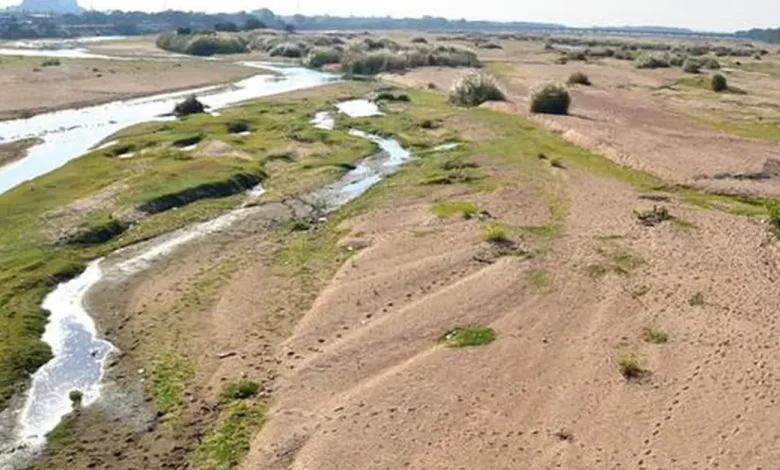
Context- The long-pending Cauvery waters sharing dispute between Tamil Nadu and Karnataka was recently seen in the news.
The dispute
- The Cauvery water dispute primarily includes the Indian states of Tamil Nadu and Karnataka, with Kerala and Puducherry also laying claims.
- The dispute dates back to the nineteenth century and has its roots in two agreements signed in 1892 and 1924 between the Madras Presidency and the princely State of Mysore.
- In 1892: The dispute started between the Madras Presidency and the Princely state of Mysore. Madras disagrees with the Mysore administration’s notion to build irrigation systems, arguing that it might obstruct water flow into Tamil Nadu.
- In 1924: The dispute came close to being resolved whilst Mysore and Madras reached an agreement under which Mysore was allowed to construct a dam at Kannambadi village. It is to be legitimate for 50 years and reviewed thereafter. Based on this agreement, Karnataka builds the Krishnaraja Sagar dam.
- After 50 years, the 1924 agreement was lapsed in 1974, and allowed Tamil Nadu to expand its agricultural location and restricted Karnataka’s potential to expand farming activities along the Cauvery basin.
- It brought about a dispute while Karnataka commenced building reservoirs to make up for lost ground.
Key Issues
- Primarily, the dispute pertains to the allocation of water resources during water scarcity, the distribution of water for the duration of normal years, and the status quo of reservoirs and dams along the river’s direction.
- Both states are vying for a greater part of the river’s water to cater to the needs in their expanding populations and agricultural activities.
Observation by the Supreme Court of India
- The Supreme Court, in 2018, declared the Cauvery River a countrywide useful resource and upheld the water-sharing preparations decided by way of the Cauvery Water Disputes Tribunal (CWDT).
- Also, the Central Government was directed to formalise the Cauvery Management Scheme.
Constitutional Provisions
- Article 246 of the Constitution offers the Centre and States certain powers over water sources.
- Article 262 of the Constitution deals with the adjudication of water disputes. The provisions in this regard are:
- Article 262 (1) Parliament may also, by regulation, offer for the adjudication of any dispute or complaint with respect to the use, distribution or control of the waters of, or in, any inter-State river or river valley.
- Article 262 (2) Notwithstanding anything in this Constitution, Parliament may also, by way of regulation, offer that neither the Supreme Court nor some other court docket shall exercise jurisdiction in respect of such a dispute or criticism as is cited in clause (1).
Statutory Provisions
- The Inter-State River Water Disputes (ISRWD) Act, 1956, affords the felony framework for the decision of these disputes.
- It empowers the Union Government to interfere in disputes surrounding inter-kingdom rivers when negotiations between states fail.
- A Water Disputes Tribunal is then constituted for the adjudication of the water dispute.
- The Inter-State River Water Disputes (Amendment) Bill, 2019: It was brought to streamline the adjudication of inter-kingdom river water disputes.
- It proposes the establishment of a single, standalone tribunal with a permanent office space and infrastructure.
- It aims to update the existing nine tribunals, together with the ones for the Cauvery, Mahadayi, Ravi, Beas, Vansadhara, and Krishna rivers.
- It proposes the established order of a Dispute Resolution Committee (DRC) to amicably solve inter-state water disputes within a maximum period of one year and six months.
- Any dispute that can’t be settled with the aid of negotiations shall be cited by the Tribunal for adjudication.
Way Forward
- It is a complex problem that requires a balanced method, taking into account the needs and rights of all stakeholders, with the aid of proactive measures and tasks to remedy these disputes.
- The resolution of inter-state water disputes is essential for the sustainable management of water resources in India.
Source: The Hindu
UPSC Prelims Practice Question:
Q.Which of the following Protected Areas are located in Cauvery basin? (2020)
- Nagarhole National Park
- Papikonda National Park
- Sathyamangalam Tiger Reserve
- Wayanad Wildlife Sanctuary
Select the correct answer using the code given below
a. 1 and 2 only
b. 3 and 4 only
c. 1, 3 and 4 only
d. 1, 2, 3 and 4
Ans: “c”
UPSC Mains Practice Question:
Q.Constitutional mechanisms to resolve the inter-state water disputes have failed to address and solve the problems. Is the failure due to structural or process inadequacy or both? Discuss. (2013)





.png)



